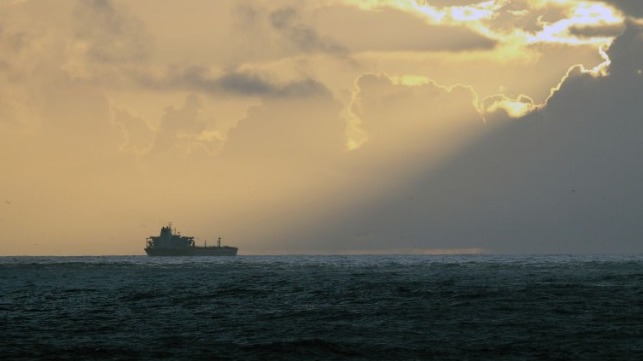Study: Customer Demand Will Drive Decarbonization

In a new study conducted with management consultancy Deloitte, the oil major Shell held discussions with more than 80 senior shipping executives about challenges and opportunities on the path to decarbonization. The IMO has set an ambition to cut total greenhouse gas emissions from shipping in half by midcentury, but obstacles abound: the propulsion technology is not yet ready; the bunkering infrastructure has yet to be built; and a fragmented, highly competitive market requires most players to optimize investment decisions for near-term profitability.
However, there are some early signs of public commitment to meeting IMO's climate goals - notably in Europe and Scandinavia - and in the study, many of the interviewees expressed optimism about hitting the target. 95 percent said that decarbonization is among the industry's top three priorities.
The most significant identified barrier was a lack of market demand. Deep-sea tankers, bulkers and boxships together account for about 85 percent of the industry's total emissions, but they are largely invisible to the general public, and they face little direct pressure from customers to "green" their operations. “Limited awareness means limited willingness to change the buying behavior, especially when green products cost more,” one logistics executive told the survey team.
Regulatory incentives help overcome this barrier by creating a requirement that the market does not impose. All legally-compliant stakeholders have to change simultaneously when a new global regulation comes into place, and the baseline cost of doing business rises. 70 percent of the study's participants said that they perceive a lack of suitable regulatory incentives to be a major barrier to decarbonization, and many predicted that achieving a binding IMO requirement will take a long time. “IMO 2020 took over 15 years, and that was simpler than decarbonization," one vessel operator said. A regional EU cap-and-trade requirement could come as early as this fall, but participants cautioned that this could create an uneven playing field for Europe-based operators.
To overcome these challenges, the interviewees endorsed an "ecosystem" approach to change, led by the biggest players. As one vessel operator put it, “the solution will come from the operators with their name on the ships," and the smaller family enterprises will follow.
1. Create more demand: create scale in demand for low or zero-emission shipping through charterers’ and customers’ commitments
2. Global regulation: create a level playing field globally and reduce uncertainty regarding regulations and timeframes
3. R&D collaboration: develop zero or low-emission fuels through joint R&D across shipping, other sectors and the energy industry
4. Run more pilot projects: run end-to-end green pilot projects involving customers, charterers, operators, owners and ports on specific routes and vessel types
5. Coordinate coalitions: consolidate objectives and boost coordination between bodies like the Getting to Zero Coalition and the Clean Cargo Working Group
6. Pursue flexible or modular propulsion designs: reduce the risk of choosing a new fuel by making the propulsion system easier to change later on.
7. Port coalitions: work with the world’s largest ports to create preferential treatment for green vessels
8. Investor pressure: encourage the management of shipping companies to set decarbonization targets and make related investments through activist shareholding.
9. Green finance: lower the cost of capital with dedicated green financing options
10. Scale up alternative fuel production
11. Scale up bunkering infrastructure
12. Improve operational fuel efficiency to reduce emissions
Reducing scale
These practical solutions center on altering the way that ships are fueled, but a recent study published by ABS suggests that that might not be enough. Unless the rest of the world switches to alternative energy sources in line with the Paris Climate Accord, the overall demand for shipping will rise markedly by midcentury, according to the ABS study. More demand means more ships and more ton-miles traveled, and the increased volume of traffic will offset emissions improvements from new fuels.

that matters most
Get the latest maritime news delivered to your inbox daily.
The ABS study determined that if the world's entire economy takes accelerated climate action and moves away from oil and coal, demand would decline in the crude tanker and capesize bulker segments. Growth in the container sector would be markedly slower. These externally-driven limits on fleet size would augment the industry's internal efforts to reduce emissions.
In turn, this means that shipping's success in reducing total emissions depends upon changes in the global economy, according to ABS head of sustainability Georgios Plevrakis. "Shipping alone is not going to hit its decarbonization targets for 2050, it's going to require a global decarbonization strategy involving the entire value chain," Plevrakis said in a recent interview.
